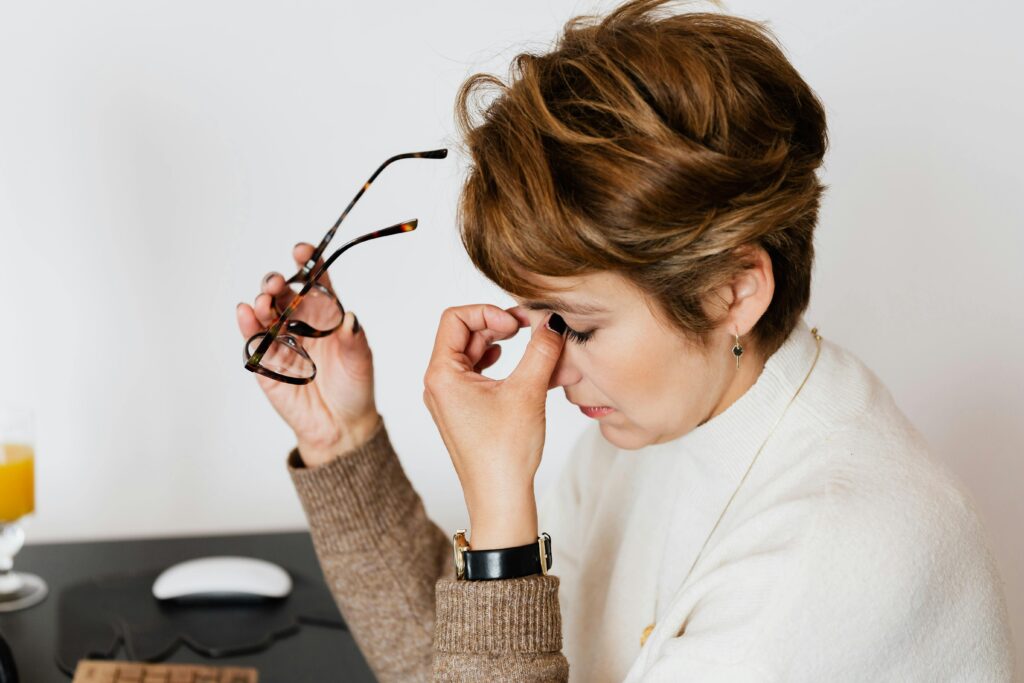Anxiety disorders are some of the most common mental health challenges, affecting millions globally. While psychotherapy and medications are standard treatments, many seek alternative options for managing anxiety. One increasingly popular option is acupuncture, a practice rooted in Traditional Chinese Medicine (TCM). This article delves into how acupuncture can help relieve anxiety, explaining its mechanisms, benefits, and practical self-care tips through acupressure.
What is Anxiety?
Anxiety disorders, such as generalized anxiety disorder (GAD), panic disorder, and social anxiety, present with symptoms like excessive worry, restlessness, difficulty concentrating, and physical discomfort like muscle tension. With growing interest in complementary treatments, acupuncture has become a focal point for those seeking non-pharmaceutical solutions for anxiety management.
How Does Acupuncture Work?
Acupuncture involves inserting fine needles into specific points on the body (acupoints), which TCM believes are connected by meridians through which life energy, or “Qi,” flows. While acupuncture is widely known for pain relief, its benefits for mental health, particularly anxiety, are becoming more recognized.
How Acupuncture Relieves Anxiety
Although the exact mechanisms aren’t fully understood, acupuncture’s potential for anxiety relief is linked to several key factors:
- Neurotransmitter Regulation: Acupuncture may stimulate the release of mood-regulating chemicals like serotonin and endorphins, promoting feelings of well-being.
- Stress Hormone Reduction: Research suggests acupuncture can lower cortisol levels, helping reduce the body’s stress response.
- Balancing the Nervous System: Acupuncture may help calm the autonomic nervous system, restoring a sense of relaxation during anxiety episodes.
- Enhanced Blood Flow: Improved circulation due to acupuncture can alleviate physical anxiety symptoms, such as muscle tension and tightness.
Research on Acupuncture for Anxiety
Studies suggest acupuncture can effectively reduce anxiety symptoms. One systematic review of randomized controlled trials found acupuncture more effective than placebo in relieving anxiety, particularly for those with generalized anxiety disorder (GAD). Another study showed that ten acupuncture sessions over 12 weeks significantly reduced anxiety symptoms, with effects lasting even after treatment.
However, research limitations, such as small sample sizes and inconsistent methods, indicate the need for further, more rigorous studies to confirm these findings.

Acupressure Points for Anxiety Self-Care
For those seeking a self-administered approach, acupressure—applying pressure to acupoints—offers a needle-free way to alleviate anxiety. Here are some helpful acupressure points:
- Yintang (Hall of Impression): Located between the eyebrows, this point helps calm the mind. Apply gentle, circular pressure for 5-10 minutes while breathing deeply.
- HT7 (Heavenly Gate): This point, found on the wrist’s inner side, below the palm, helps calm the heart. Press down firmly with your thumb for several seconds.
- GB21 (Shoulder Well): Situated between the neck and outer shoulder, this point helps release tension. Massage it gently in circular motions.
- LI4 (Union Valley): This point is known for stress relief between the thumb and index finger. Pinch gently for several seconds.
- LV3 (Great Surge): This point on the foot, between the first and second toes, helps regulate emotions. Apply pressure with your thumb for a few moments.
- PC6 (Inner Gate): This point, found on the inner forearm, two finger widths from the wrist, is known for its calming effects. Press firmly for several seconds.
Benefits of Acupuncture for Anxiety
- Fewer Side Effects: Compared to medications, acupuncture has minimal side effects. Most patients report feeling calm and relaxed after their sessions.
- Holistic Healing: Acupuncture addresses the root imbalances causing anxiety, promoting overall well-being.
- Complementary Treatment: Acupuncture can enhance traditional treatments like therapy and medication, providing a more comprehensive approach to anxiety management.
- Increased Accessibility: As acupuncture becomes more mainstream, it is becoming easier to access in healthcare settings.
Considerations and Limitations
Despite its benefits, acupuncture may not be a one-size-fits-all treatment for anxiety:
- Individual Variability: Some people may experience significant relief, while others may notice little change.
- Seek Qualified Practitioners: Ensure licensed professionals provide treatment to avoid risks like infection from unsterilized needles.
- Adjunct Therapy: Acupuncture is best used as part of a broader treatment plan, not as a standalone solution for severe anxiety disorders.
- Research Gaps: More extensive studies are needed to solidify acupuncture’s long-term benefits and ideal treatment protocols.
Acupuncture offers a promising, holistic approach to anxiety relief. It helps regulate neurotransmitters, reduce stress hormones, and promote relaxation. Combined with acupressure for self-care, it provides accessible tools for managing anxiety. While more research is needed to confirm its full potential, acupuncture can be a valuable complement to traditional treatments, helping individuals manage anxiety in a natural, balanced way. Always consult healthcare professionals to develop a personalized treatment plan addressing symptoms and root causes.



